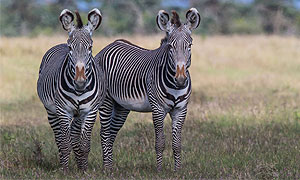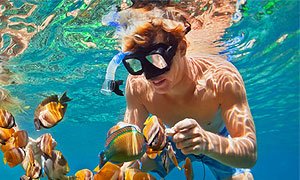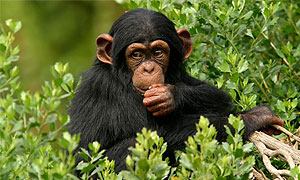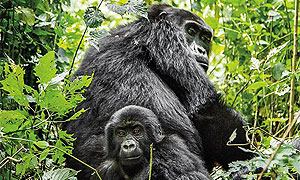East Africa Private Wildlife Conservancies
East Africa Private Wildlife Conservancies: We love private conservancies for the advantages they offer to guests and the positive impact they have on conservation and the upliftment of rural communities… but the main reason we recommend private conservancies to our clients is for the exceptional game viewing advantages they offer, which are not available in national parks:
* Game drives that last until after dark
* A crowd-free game-viewing experience
* The option of picnics away from camp
* The option of doing guided nature walks
* The freedom for your guide to go off-road
These extras are especially advantageous in conservancies that share unfenced borders with Africa’s most famous national parks – Kenya’s Masai Mara & Tanzania’s Serengeti Depending on the destination, conservancies are also known as private concessions, private reserves, wildlife management concessions, and community management areas.
Conservancies contribute directly to the sustainable conservation of areas of wild habitat beyond national parks and often improve the lives of rural communities in very practical and meaningful ways.
This positive impact means that every guest who stays in a private conservancy enjoys the bonus feel-good factor of knowing that their vacation is contributing directly to protecting Africa’s wildlife and untamed places for their grandchildren to explore.
How private conservancies enhance your vacation
Since conservancies have fewer visitors at any one time, there are fewer guests on game-viewing activities, even during the high season. This means largely crowd-free game drives and the pleasure of enjoying a wilderness without seeing more than one or two other vehicles and no congestion around sightings.
While the game viewing in national parks is legendary, the high-season crowds do take away from the experience.
Guided nature walks allow you to experience the wilderness up close, in all its glorious details: animal tracks, burrows, wildflowers, insects, and medicinal plants. You’ll see much more walking quietly through the bush than you can imagine – slip past grazing antelope, see more birds, and feel part of nature rather than a mere observer of it.
Guided nature walks are a great alternative activity to game drives and don’t require more than a basic level of fitness.
Game drives off-road and after sunset mean that your guide can leave the dirt road to get you a little closer to a sighting and show you the nocturnal world of the wilderness using a powerful spotlight. Most predators and especially Africa’s cats – lion, leopard, caracal, and a serval – hunt at night.
They become active in the early evening, which is the time you need to be back at your lodge in a national park. In a private conservancy, you can witness lions getting ready to hunt and even follow them as they scout prey.
Typically, the late afternoon game drive ends at a scenic spot for sundowners. From there, the guide uses a spotlight to conduct a night drive back to the lodge. The spotlight reflects the eyes of nocturnal species like civets, genets, and aardvarks making them easier to see.
Picnic meals are not exclusive to private conservancies but are rarer in national parks. They usually involve a small staff of cooks and waiters setting up tables and chairs in a scenic spot with a great view, and preparing a hot meal for you that is every bit as good as what you’d have at the lodge but in a unique setting.
Picnics are very popular for brunch, and sunset cocktails and dinner is eaten alfresco under Africa’s magnificent starry skies.
Cultural encounters with rural communities offer you an authentic experience of traditional African culture, like the Maasai and Samburu in Kenya or the Hadza are a modern hunter-gatherer people in Tanzania, as well as the opportunity to see where your guides, trackers, cook, waiters, and other lodge staff may have grown up.
Your vacation delivers are numerous practical benefits to communities but the emotional value is incalculable, both in terms of the renewal of cultural pride and the demonstration of a direct link between tourists and the benefits of tourism, which is necessary for long-term sustainable conservation.
Want the best of both? You can have the best of both conservancies and national parks by including a conservancy that shares a fence-less boundary with a top national park in your safari plans.

Kenya Wildlife Conservancies
A wildlife conservancy is land managed by an individual landowner, a body or corporate, group of owners or a community for purposes of wildlife conservation and other compatible land uses to better livelihoods. 65% of Kenya’s wildlife live in community and private lands, conservancies. Kenya Wildlife Conservancies types include community conservancies, group conservancies and Private conservancies.
Kenya Wildlife Conservancies
Click Here
Tanzania Wildlife Conservancies
Tanzania Wildlife Conservancies and protected areas altogether make up some 14% of the country's land area. Tanzania Game Reserves are home to an incredible variety of wildlife, flora and even cultures. The conservancies assist pastoralist communities conserve their natural resources by slowing unsustainable agricultural expansion and instead promote sustainable land-use practices.
Tanzania Wildlife Conservancies
Click Here
Zanzibar Wildlife Conservancies
Zanzibar Island is so not a wildlife area of Tanzania, however the stunning Indian Ocean coastline with its turquoise waters, tranquil islands, coconut palms and romantic dhows setting sail from sleepy fishing villages heading to nearby Zanzibar, offers a lovely addition to a wildlife safari. Saadani National Park's coastal location is ideal if you're looking for both bush and beach – and is the only bush-meets-beach wildlife sanctuary in East Africa.
Zanzibar Wildlife Conservancies
Click Here

